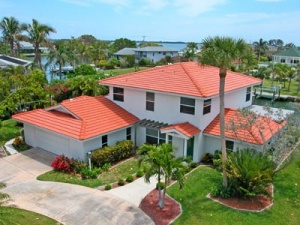Managing your new overseas holiday home
Day dreaming about your I future home overseas and then sorting out the financial details of paying for and running the property are often two worlds apart.
But dull as money management may seem, it's a vital part of the home buying process abroad and tends to get very interesting when you miscalculate incomings and outgoings and balancing the books becomes increasingly difficult.
Maid to measure?
Most holiday home owners at first assume the cheapest option is the best - which is to clean the property themselves when they arrive for their holiday. But to arrive from a long journey door-to-door only to find a flooded lounge, dead insects all over the kitchen and long grass in the garden is not quite such an appealing prospect. So after the first visit to their overseas property many owners switch to the more sensible option; paying a local to keep an eye on your home. These come in three forms - cleaning, maintenance and repair. It's ideal to employ someone to clean the house just before you arrive and a handyman to maintain and repair the property. And it's best to arrange regular inspections as well as a set a cleaning schedule. Costs vary hugely from country to country depending on the local going rate. 
But a rule of thumb for an established market is that for a medium-size, three bedroom villa you are likely to pay approximately €60 to €80 a month for a weekly one-hour clean.
Maintenance
If this all sounds a bit of a chore then one option is to buy within a purpose-built resort. These are run by management companies who often organise everything and that can include pavement maintenance, rubbish collection, property repair and cleaning and the upkeep of major structures such as swimming pools. In return you will pay a monthly maintenance charge and this varies a great deal from resort to resort - the more upmarket the resort, the higher the charge. Ensure you check the paperwork carefully; some resorts have no limit on the contributions you may have to make to repairs and maintenance. So if a swimming pool needs replacing or major work completing, you may have to pay your share of the bill. One advantage of newbuild homes is that they often come with build quality guarantees so that, unlike an older home, should anything go wrong the builder is required to make good any faults for a defined period - usually somewhere between six months and five years.
Taxing year
Rememt)er that many countries charge an annual 'property tax' on top of the maintenance charges you may have to pay to keep a property ticking over. For example in Greece you pay a yearly national land lax of between 0.25% and 0.35% of your property's value plus a local land tax of around 0.3% of its value (source: International Real Estate Hanbook, 2005).
Insurance
The least considered element of running a home overseas - and the most regretted when it's omitted - is house and contents insurance. For holiday home owners ifs vital
to have it in place the moment you take possession rather than to cover you the first time you pay a visit. It's essential to remember that the property is likely to be standing empty for long periods of time and the likelihood of problems occurring when you're not there is high - and consequently many insurance firms set higher alarm and security equipment requirements than back home. And remember rental properties will need extra cover to include accidental damage and public liability.
Utilities
Even if you're not using a property the local utility standing charges will have to be paid so ensure you factor this into your budget - plus remember that in many areas of southern Europe, for example, mains gas is only available in main towns and larger villages - otherwise you'll have to buy in bottles of gas or arrange for a local agent to pick up and deliver them if it's a buy-to-let property.
Money transfer
The money you use to pay all the bills for your home overseas will need to come from somewhere - and many people transfer a lump sum on a quarterly basis to cover them. So remember that there is now a large choice of money transfer companies who offers services designed to reduce the cost of transferring money between countries with different currencies by offering more competitive rates than the banks - so look carefully at how you are transferring the cash and how much it's costing you.
Good news
The costs of running a property overseas are often significantly less than in the UK or Ireland and in the cheapest countries can be up to a third the cost for comparable properties - but don't forget to shop around for the best rates among local service providers, in much the same way you would at home.

